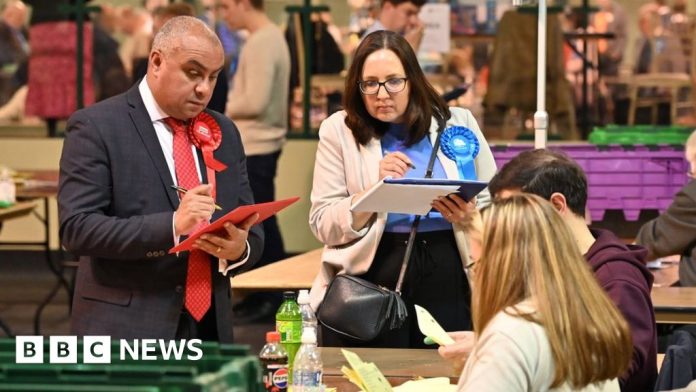Key Takeaways from England’s Council Elections: Labour Gains, Tories Struggle, and Voter ID Issues
In the latest council elections across England, Labour has emerged as a strong contender, gaining over 180 council seats and taking control of eight councils, including key bellwether seats like Milton Keynes and Nuneaton. The party’s vote share was up by 3% compared to the last elections in 2021, showing a positive trend for them.
On the other hand, the Tories have faced a tough day, losing over 470 councillors and control of 10 councils, including Basildon in Essex. Despite the disappointing results, Prime Minister Rishi Sunak’s leadership seems secure for now, with internal critics holding off on a challenge.
Labour’s success extended to the mayoral races, with wins in newly-created regional mayor roles and victories for Sadiq Khan in London and Richard Parker in the West Midlands. However, the party also faced losses in wards with a large Muslim population, possibly due to its stance on the Israel-Gaza conflict.
Smaller parties like the Liberal Democrats and Greens made gains in council seats, targeting areas they hope to win in the upcoming general election. Nigel Farage’s Reform UK party also saw some success, winning 16.9% of the vote in Blackpool South.
The elections were not without drama, as former Prime Minister Boris Johnson was turned away from his local polling station for forgetting his voter ID. The incident highlighted the ongoing debate around voter ID requirements, with the government considering adding Veteran Cards to the list of acceptable IDs.
Overall, the council elections provided a glimpse into the current political landscape in England, setting the stage for the upcoming general election.
